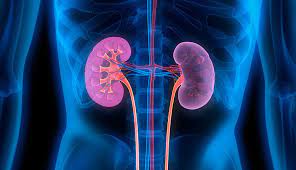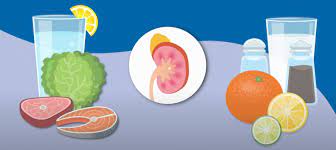Kidney Disease Treatment
Embracing Hope: A Journey Through Revolutionary Treatments for Chronic Kidney Disease

Chronic kidney disease (CKD) is a formidable opponent, touching the lives of millions worldwide with its serious implications. It’s a journey through the unknown, where the kidneys, vital guardians of our health, find themselves compromised over time. Without the right interventions, CKD can cast its shadow into end-stage renal disease, a daunting prospect requiring dialysis or even a kidney transplant for survival. Yet, amidst this challenge, there exists a glimmer of hope—a beacon of revolutionary treatments that not only slow the relentless progression of CKD but also breathe life into improved quality of life.
Navigating the Emotional Terrain: Managing Diabetes and Hypertension
The journey begins with acknowledging the emotional weight carried by those facing CKD. Managing this condition involves a delicate dance with emotions, as we grapple with the realities of diabetes and hypertension, two silent instigators of kidney damage. It’s about more than just numbers on a chart; it’s about the emotional resilience required to confront these underlying medical conditions.
Tips to Control Diabetes and Hypertension with Heartfelt Care:
- Tending to Blood Sugar Levels: Picture the courage it takes to face the daily battle of managing blood sugar levels. It’s a journey of collaboration with healthcare providers, establishing not just numbers but a sense of control. It’s about crafting a holistic approach—diet, exercise, and vigilant monitoring—all stitched together with the thread of determination.
- Nurturing Blood Pressure Management: Imagine the emotional landscape of someone navigating the labyrinth of hypertension. It’s a partnership with healthcare providers, a commitment to prescribed medications, and a conscious effort to redefine lifestyle choices. It’s the emotional resonance found in the echoes of advice: reduce salt, moderate alcohol, and maintain a healthy weight.
- Regular Kidney Function Monitoring as a Lifeline: For those living with diabetes or hypertension, the emotional landscape is woven with regular checks of kidney function. It’s about early detection, the relief of timely intervention, and the empowerment that comes with understanding one’s own body.
- Embracing a Holistic Lifestyle: Beyond managing medical conditions, it’s about cultivating a lifestyle that whispers self-care. Picture the emotional strength required to adhere to a diet low in salt, saturated fats, and processed foods. Envision the courage to engage in regular physical activity, banishing the shadows of sedentary habits.
Medical Therapy: Prescriptions for Healing and Hope
In the realm of medical therapy, emotions play a crucial role. It’s not just about prescriptions and dosage; it’s about the promise these medications hold—the promise to slow CKD’s relentless march and alleviate the emotional burden that accompanies the diagnosis.
Lifestyle Modification: A Symphony of Self-Care
Lifestyle modifications become a symphony of self-care, where each note resonates with the emotional undertones of resilience. Picture the emotional weight lifted as individuals work with dietitians to craft a kidney-friendly diet. It’s a dance with nutrition, learning to limit salt, potassium, and phosphorus while embracing the nourishment found in poultry, fish, and eggs.
- Regular Exercise: The Rhythm of Resilience: Imagine the emotional strength required to embark on a journey of regular exercise, especially in advanced CKD stages. It’s not just about physical health but the emotional fortitude to take charge, maintaining a healthy weight, controlling blood pressure, and managing blood sugar levels.
- Stress Management: A Breath of Calm: Stress, a silent intruder, demands emotional tools for containment. It’s not just about meditation, deep breathing, or yoga; it’s about the emotional solace found in these practices. Sometimes, seeking a mental health professional becomes a beacon, offering a safe space to navigate the emotional nuances of stress.
- Quit Smoking: Breaking Chains for Breath: Smoking, a metaphorical chain binding health, requires emotional courage to break. It’s not just about quitting; it’s about the emotional liberation that comes with improved overall health and the slowing of CKD progression.
- Limit Alcohol Consumption: A Toast to Moderation: Limiting alcohol isn’t just a numerical restriction; it’s an emotional commitment to moderation. Picture the emotional balance achieved when individuals limit alcohol intake, aligning with recommendations for a healthier journey.
- Manage Underlying Medical Conditions: A Compass for Control: Managing conditions like diabetes and hypertension involves more than medications; it’s an emotional compass guiding individuals towards control. It’s a narrative where lifestyle modifications, medication adherence, and regular monitoring become chapters in a story of resilience.
New Treatments: Pioneering Hope
In the arena of new treatments, emotions take center stage. It’s not just about clinical trials and research; it’s about the emotional hope these breakthroughs bring. Picture the emotional uplift as studies reveal the potential benefits of SGLT2 inhibitors, offering not just a treatment for diabetes but a lifeline for CKD patients Recently FDA approves empagliflozin launched by boehringer ingelheim (https://www.boehringer-ingelheim.com/us/press-releases/fda-approves-new-treatment-option-adults-ckd) . In the realm of stem cell therapy, it’s about the emotional anticipation as research unfolds, promising new avenues for improved kidney function and slowed CKD progression.
In Conclusion: A Journey Woven with Resilience and Hope
Chronic kidney disease is not just a medical condition; it’s a journey etched with emotions, resilience, and hope. As individuals navigate this path, they are not alone. With collaborative efforts, personalized treatment plans, and emotional fortitude, CKD becomes not just a diagnosis but a journey towards a brighter, hope-filled horizon.
